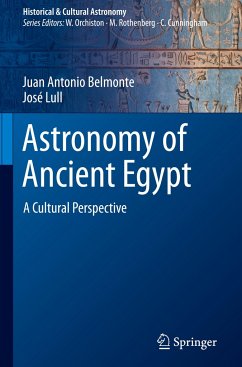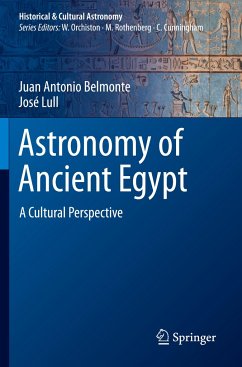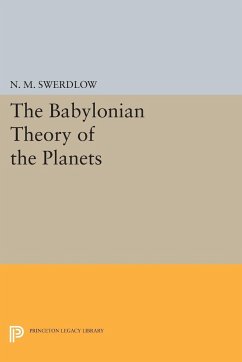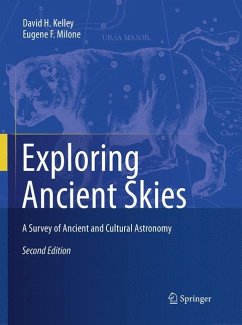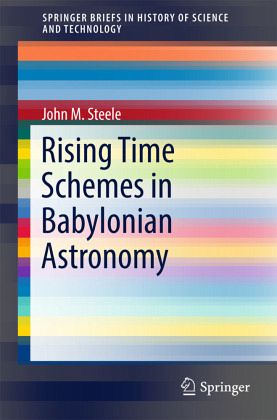
Rising Time Schemes in Babylonian Astronomy

PAYBACK Punkte
23 °P sammeln!
This revealing work examines an approach from ancient astronomy to what was then a particularly important question, namely that of understanding the relationship between the position in the ecliptic and the time it takes for a fixed-length of the ecliptic beginning at that point to rise above the eastern horizon. Schemes known as "rising time schemes" were used to give lengths of the celestial equator corresponding to each of the twelve zodiacal signs which make up the ecliptic. This book investigates the earliest known examples of these schemes which come from Babylonia and date to the mid to...
This revealing work examines an approach from ancient astronomy to what was then a particularly important question, namely that of understanding the relationship between the position in the ecliptic and the time it takes for a fixed-length of the ecliptic beginning at that point to rise above the eastern horizon. Schemes known as "rising time schemes" were used to give lengths of the celestial equator corresponding to each of the twelve zodiacal signs which make up the ecliptic. This book investigates the earliest known examples of these schemes which come from Babylonia and date to the mid to late first millennium BC. Making an important contribution to our knowledge of astronomy in the ancient world, this volume includes editions and translations of all of the known Babylonian rising time texts, including several texts that are identified for the first time. Through a close examination of the preserved texts it has been possible to reconstruct the complete Babylonian rising time scheme. This reconstruction is unprecedented in its completeness, and it is also now possible to situate the scheme within a genre of Babylonian astronomy known as schematic astronomy which presents theoretical descriptions of the astronomical phenomena.
The unique discoveries and fresh explorations in this book will be of interest to historians of ancient astronomy, scholars of Babylonian history and those investigating the origins of scientific thought.
The unique discoveries and fresh explorations in this book will be of interest to historians of ancient astronomy, scholars of Babylonian history and those investigating the origins of scientific thought.



